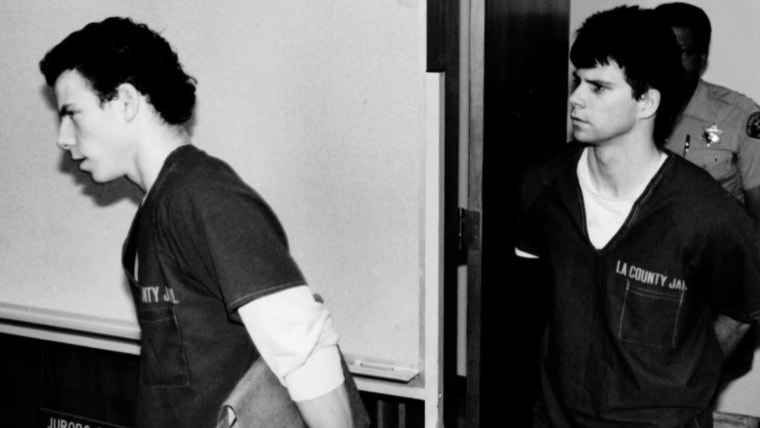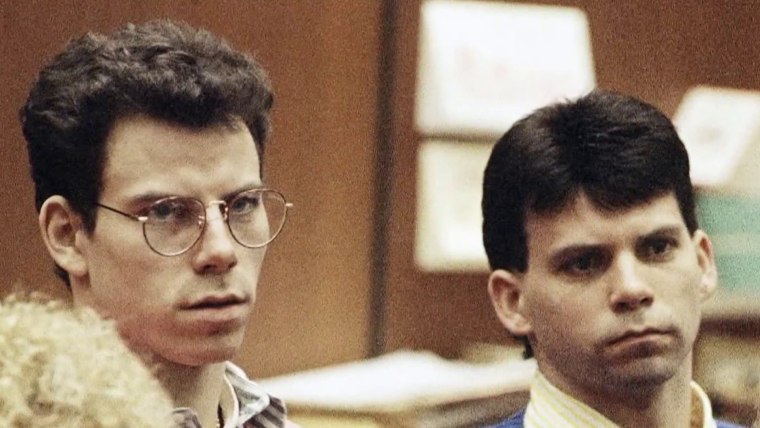On Tuesday, Los Angeles County Superior Court Judge Michael Jesic resentenced Lyle and Erik Menendez to 50 years to life in prison for the 1989 murders of their parents, José and Kitty Menendez. It’s a remarkable turn of events for the brothers, who were originally sentenced to life without parole in 1996. And though they’re not exactly close to being released from prison, even a resentencing is a testament to their defense attorney’s audacious legal maneuvering.
Lyle and Erik expressed deep remorse during the hearing, acknowledging their actions and the pain caused. Their defense highlighted rehabilitation efforts, including educational achievements and positive contributions within the prison community. The defense had also urged the court to resentence the brothers for the lesser crime of manslaughter, which would have resulted in their immediate release from prison.
The resentencing was influenced in part by new evidence suggesting the brothers’ father had sexually abused them.
The resentencing was influenced in part by new evidence suggesting the brothers’ father had sexually abused them, including a letter Erik wrote in 1988 and testimony from former member of the boy band Menudo, Roy Rosselló. But, while former L.A. District Attorney George Gascón supported the resentencing, the incoming DA, Nathan Hochman, opposed it, claiming the brothers failed to demonstrate remorse and accountability.
At first, it may seem that losing the bid for a manslaughter resentencing, and a new sentence of 50 years to life, is no victory. But it is.
First, the manslaughter option was never a realistic outcome. It was an example of an “aggressive opening” or a “highball” demand by the defense. Likely, the brothers’ (very skilled) attorney Mark Geragos didn’t expect the judge to grant that request. But it’s certainly possible that the judge could have. And second, even if he didn’t, the “sky-high” request also has the effect of making what they really wanted seem more reasonable. And, the defense got what they really wanted.
The 50-to-life sentence sounds bad, but it actually makes the brothers immediately eligible for parole under a California youthful offender law because the crime was committed when they were under the age of 26. “Immediately eligible” for parole is not parole, but it’s definitely a step in the right direction. The state parole board will now decide if they can go free.
Meanwhile, the brothers are still pursuing two additional, separate paths to freedom. First, they have filed a petition for a writ of habeas corpus in California state court, based on a claim of newly discovered evidence of actual innocence, or at least evidence that undermines confidence in their convictions. This evidence includes the aforementioned 1988 letter and statements from Rosselló, who alleged that José Menendez sexually assaulted him when Rosselló was a teenage performer with Menudo.

Second, the brothers have also submitted a clemency request to California Gov. Gavin Newsom, asking him to commute their sentences or pardon them outright. Clemency is a discretionary executive act, and the governor can consider whether the brothers have demonstrated rehabilitation (both brothers have earned degrees and contributed to prison programs). The governor may also consider how much time has passed since the crimes, and evolving views on trauma, youth and long-term incarceration.
Certainly the latter is a major factor for the brothers. Anyone who is old enough to remember their trials in 1993-95 will remember that they were hardly perceived as sympathetic characters. Public sentiment was that they were monsters who lied to police and went on a spending spree with their dead parents’ money.
Newsom is not likely to pardon the brothers — that’s another example of a highball demand that the brothers hope will get them closer to their real request: commutation of a sentence.
Commutation does not erase the conviction, but it shortens the sentence. And ideally, the brothers would want their sentence commuted to “time served.” As in, they would be released immediately.
Both the habeas (new evidence) petition and the clemency request are also long shots. But then again, so was the resentencing request.
